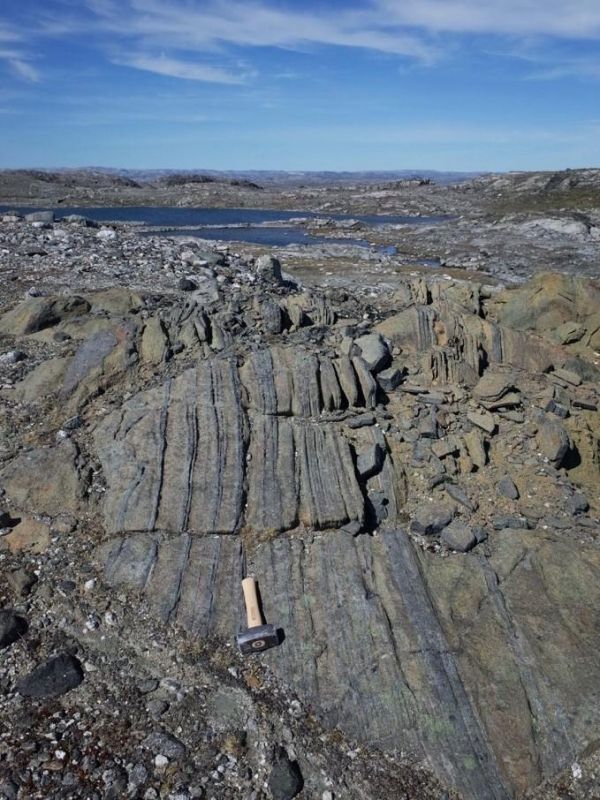Spearheaded by earth scientists of the University of Cologne, an international team of geologists has found evidence that a large proportion of the elements that are important for the formation of oceans and life, such as water, carbon and nitrogen, were delivered to Earth very late in its history. Previously, many scientists believed that these elements were already present when the Earth began to form. However, geological investigations have now shown that most of the water in fact was only delivered to Earth when its formation was almost complete.
The new findings, which are a result of collaboration among scientists from Germany, Denmark, Wales, Australia and Japan, will be published in Nature under the title ‘Ruthenium isotope vestige of Earth’s pre-late veneer mantle preserved in Archean rocks’ on 11 March 2020.
It is a generally accepted fact that volatile elements such as water originate from asteroids, the ‘planetary building blocks’ that formed in the outer solar system. However, there is ongoing discussion among experts as to when precisely they came to Earth. ‘We have now been able to narrow down the timeframe much more precisely’, said first author Dr. Mario Fischer-Gödde from the Institute of Geology and Mineralogy at the University of Cologne. ‘To do so, we compared the composition of the oldest, approximately 3.8 billion-year-old mantle rocks from the Archean Eon with the composition of the asteroids from which they may have formed, and with the present-day composition of the Earth’s mantle.’
Read more at University of Cologne
Image: 3,8 billion-year-old rocks at the Earth's surface in southwestern Greenland. (Credit: Kristoffer Szilas, University of Copenhagen)


